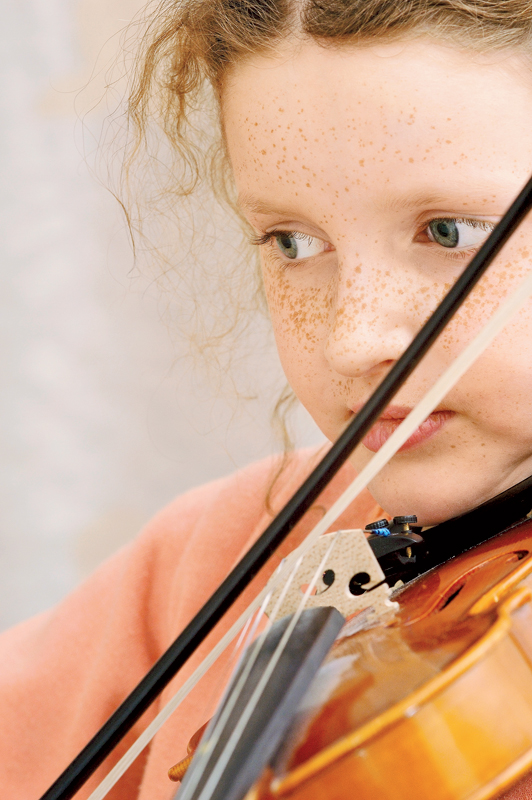The Sound of Music, the Taste of Success—How Naperville Music programs prepare Students for the Future
By Karen Dix
May 2013 View more Community
 If you’re looking for an incredible musical performance, look no further than a high school concert in Naperville School District 203 or 204. Naperville is home to several award-winning choral and instrumental music programs that take turns collecting honors and attention from the media and national organizations like the GRAMMY Foundation and the National Music Merchant’s Association. At the same time, music students consistently achieve the highest ratings in district and state level solo and ensemble contests and festivals.
If you’re looking for an incredible musical performance, look no further than a high school concert in Naperville School District 203 or 204. Naperville is home to several award-winning choral and instrumental music programs that take turns collecting honors and attention from the media and national organizations like the GRAMMY Foundation and the National Music Merchant’s Association. At the same time, music students consistently achieve the highest ratings in district and state level solo and ensemble contests and festivals.
“Our true mission is to help students reach their fullest potential as producers and consumers of music,” said Randy Kulik, Naperville District 203 music coordinator. However, a newly formed grass roots organization called ArtSpeaks 204, believes the music programs are also developing important 21st Century skills to serve Naperville students long after graduation.
The Four C’s
Charles Staley, art department chairman at Neuqua Valley High School, says his district is successful for many reasons, including a K-12 curriculum that develops individual skills, as well as group skills and productive collaboration between levels of instruction. “Naperville is a community that values the essential role the arts play in teaching 21st Century skills and nurturing the human spirit,” said Staley. This well-rounded approach helps develop the National Education Association’s 4 C’s for 21st Century success: Communication; Collaboration; Critical thinking; and creativity.
ArtSpeaks attempts to educate and raise awareness about the importance of art education in the development of these 21st Century skills by hosting events that feature distinguished community and business leaders who testify to the importance of arts education in their lives.
Margaret Byrnes, is a clinical psychologist, ArtSpeaks Committee member, and District 204 mother with children in the music programs. She has witnessed firsthand in her patients how music education impacts the cognitive development of children, and offers therapeutic benefits to all ages.
“People agree arts education is important, but when budgets are discussed, they don’t acknowledge how essential it is for gaining a competitive advantage in the 21st Century,” she said.
The Developing Musician
Studies cited on the ArtSpeaks 204 Facebook page show how early musical education positively affects cognitive development in childhood. One study found that taking childhood music lessons develops connections between motor and sensory regions of the brain, which helps the body plan and execute physical movements.
In both Districts 203 and 204, students start music classes at the preschool level. In elementary school, they can participate in chorus or begin instruction on a band or orchestra instrument. In middle and high school, band, orchestra, and chorus are offered as a class, with a “technique” lesson given each week for instrumentalists.
Many curricular and extracurricular opportunities are competitive, meaning students must audition to earn a spot. Here, the 4 C’s really come into play. Either for an ensemble or a solo, musicians preparing a piece of music for performance must apply critical thinking to evaluate progress on the piece; Communication to explain the problem to be solved; Creativity to determine how to execute the solution; Collaboration between ensemble members or instructors to implement the solution.
“We hear a lot about STEM (science, technology, engineering, and mathematics) lately, but the real success comes from STEAM (science, technology, engineering, art, and mathematics),” said Byrnes. “If we retain exemplary arts education in the early grades, our students will reap the benefits later on.”
While some music students may not be fully aware of all the benefits they are receiving from their music education, for others, their music lessons are hitting a positive note. “The primary reason students take music classes is because they love it,” said Staley.
For more information, visit the ArtSpeaks 204 Facebook page or www.artspeaks204.org


